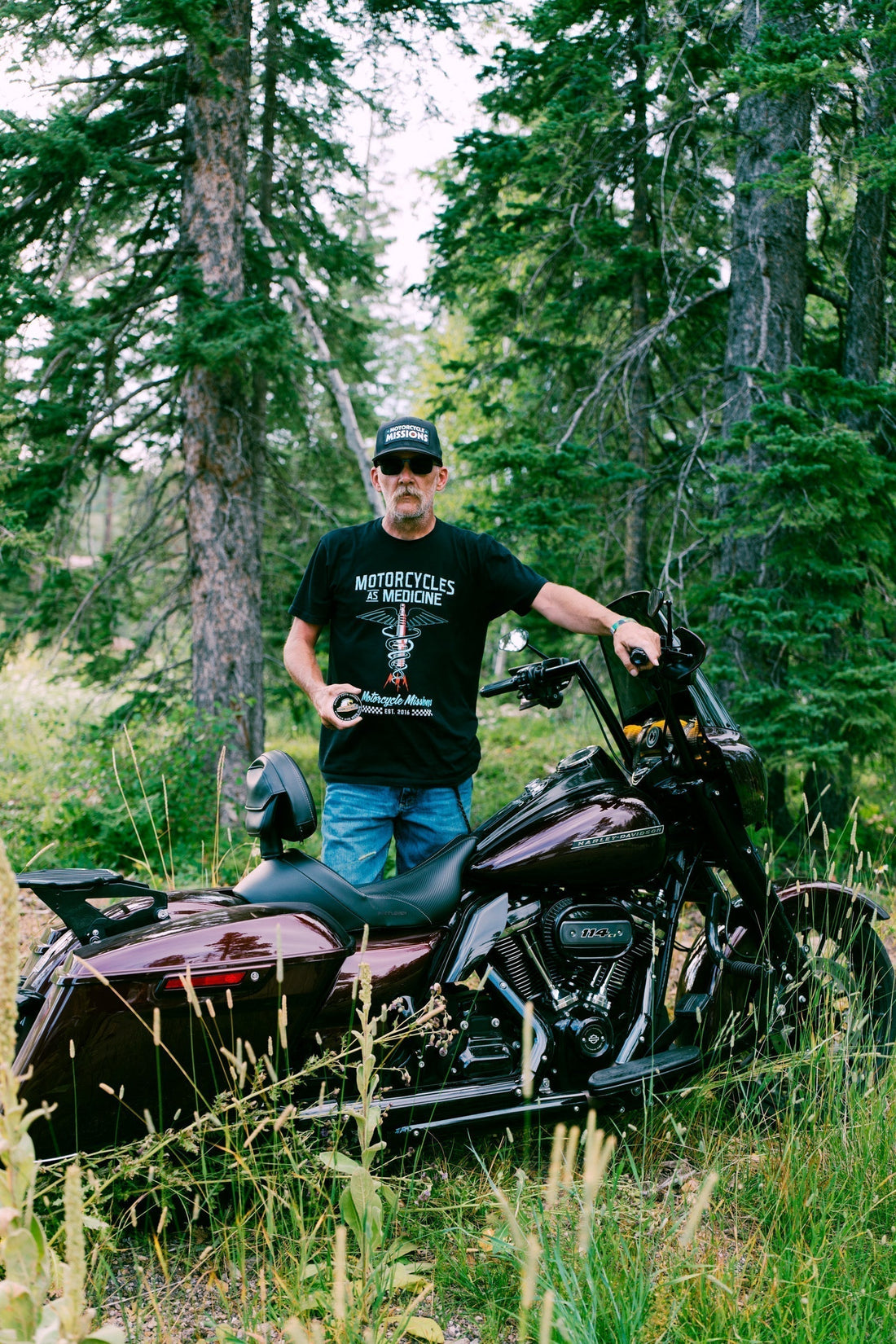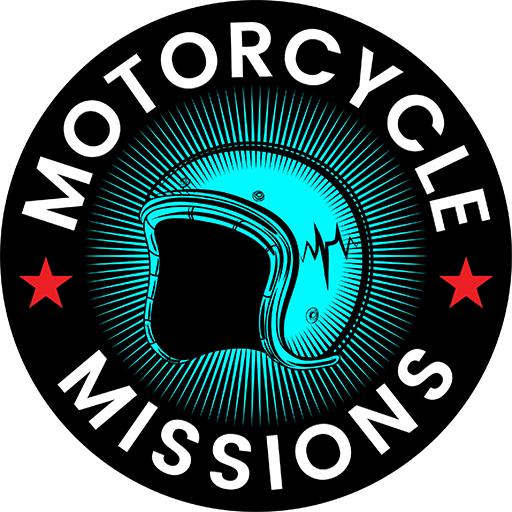
Motorcycle's Save Lives: Chris Denton
Share
By: Johnny Killmore
What's in a name? Well, if the name is Motorcycle Missions, a lot. It sounds simple enough, and in concept it is, but the results are far more than what can be summed up in a name. Get veterans and first responders suffering from trauma and put them together, in the shop with wrenches or out in the world with a set of handlebars, and see what happens. It’s an idea almost as old as the motorcycle itself, but the results can change lives in a lasting way.

Take Chris Denton, for example. A combat veteran of the US Army, he tells a story that will be familiar to many people in the military community. Like many before and after, he carried the unseen scars of war—the ones we have the hardest time talking about. The solution for Chris, and many other veterans, was to create distance, in the form of isolation and self-medication. Instead of opening up to others about how crowded places create feelings of unease, you just don't go anywhere that has people.

This works in a way, but the end result is a life unlived...a life avoided. Not everyone is helped by talk therapy or prescription medication, and some struggle to access either. Enter drugs and alcohol, mix it with extreme isolation, and I don't think I need to explain the result. Just take those two, add time, and an ever-tightening spiral will be the result. So, how to break that cycle?

“Seclusion is a bad thing for us...”

Well, there are many ways of breaking the cycle, but for Chris, it was participating in a custom bike build with Motorcycle Missions. Three months after a near-fatal overdose, he participated in build #13, a State Farm-sponsored build overseen by Roy's Toys Customs in Colorado. What he found wasn't just a bunch of parts that needed to be assembled into a motorcycle. He found an end to his isolation.

It's hard to explain the magic that happens when someone suffering from PTSD or depression comes out of their isolation and focuses on a project, side-by-side with people cut from the same cloth. In Chris's own words, “During the build, I got around six or eight other veterans and first responders that felt like me, they talked like me. We shared so much in common; some of them were deployed just like me. And it gave me something to look forward to … To be honest, it gave me hope.” While it can be hard to explain how Motorcycle Missions programs work, the fact that they work is indisputable.

“It gave me an opportunity to get outside of myself. And it reintroduced my love of motorcycles and the passion that I have for helping other veterans or first responders … I'm grateful to be here. I'm grateful for the experience and for the people that I've met. Because it is...it's life changing,” Chris says.
Several tribes of Native Americans have something they refer to as “coyote medicine.” It's a way of teaching without teaching. While on the outside, it may look like Motorcycle Missions is putting people together to ride or wrench on motorcycles, the real goal is to get vets and first responders out of the house and out of their heads, focusing on the world around them in a different way.
“I tell people that all the time. Get out of the house. Go for a walk. Get on the bike. Pick up a wrench and work on something. Just anything, to get your mind to relax, to slow down a little bit. And that's what this program does for me. You can't just live in regret or live in the issues that you face. You need to, so to speak, put your boots on and do something about it.”

That's coyote medicine, and the beauty of coyote medicine is that it doesn't require a teacher; the experience is the teacher, and the people involved are more like unofficial guides. It can be self-guided meditation or caring for horses. It can be moving the earth by hand in a garden. It can be in a workshop, spinning wrenches with friends, or out on a track controlling a dirtbike at high speed. It doesn't matter the activity, so long as it works.
But if getting drunk at the bar or sitting at home self-medicating isn't working, trying something—anything—else is worth the effort. One of the truly magical things about the types of programs Motorcycle Missions offers is that participants don't always need to reach the point where they can say to themselves, “I need help.” They can just show up for a welding class and spend time where everyone around them “gets it.”
Anyone can feel alone, even amongst a crowd of people. People recovering from trauma are especially vulnerable to feelings of isolation. But everyone needs a feeling of connection. When we lose that for whatever reason, loneliness creeps in like a frost, slowly making barren the fertile spaces of our minds where opportunity and curiosity once grew. So our mission is to seed those fields with connection, in our case, over a shared love of motorcycles.

Coyote medicine. With a wrench, with a race bike, or with an open road and an open throttle. As long as we are letting our minds free, we are free. Motorcycles save lives.
